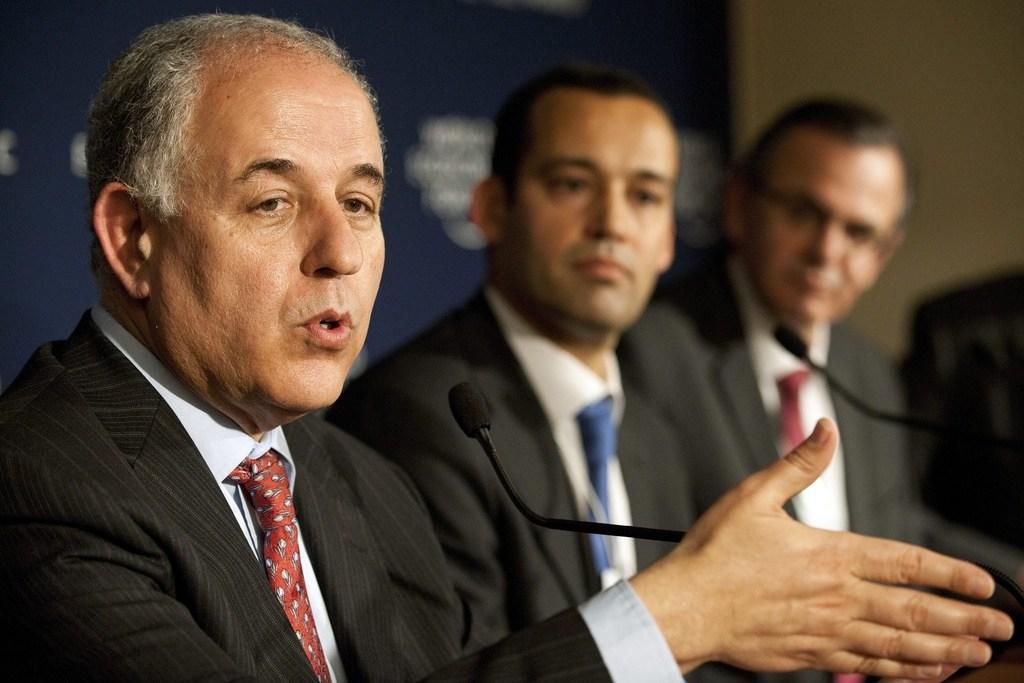Swiss in Tunisia hopeful for the future

Swiss residents in Tunisia shared with locals the excitement of the unrest which swept away the long-standing regime in January.
Beat Frei who has been in Tunisia since 1985, is still moved by the memory of the upsurge of solidarity between Tunisians and foreigners during the Jasmine Revolution, as the events in Tunisia have been dubbed.
The important thing was that everyone should act together to defend themselves against armed groups loyal to the old president, Zine el-Abidine Ben Ali, who were trying to spread terror, he told swissinfo.ch.
“Our only weapons were pick-axes, knives, sticks and a sword,” Frei explained. “It must be stressed that no foreigner was attacked during the revolution.”
One Swiss national was shot dead during the unrest. The 67-year-old was a woman of Tunisian origin, married to a Swiss, and normally resident in canton Vaud, where she worked at the university hospital in Lausanne. She was killed while standing on the terrace of her house along with several other women.
No panic
Switzerland’s new ambassador in Tunisia, Pierre Combernous, who arrived only a few weeks before Ben Ali fled to Saudi Arabia, told swissinfo.ch that it had never occurred to him to advise Swiss citizens to leave.
“None of the 1,400 members of the community panicked,” he said.
And he is optimistic for the future. “The Tunisians are discovering freedom. Thanks to Habib Bourguiba, the father of independence, there are a lot of university graduates in the country. Obviously the revolution is encouraging some wage earners to demand pay increases. I am encouraging Swiss businesses to do their bit.”
France, the former colonial power, is Tunisia’s main trade partner, followed by Italy and Germany, but Switzerland is also important. The four-nation European Free Trade Association, of which Switzerland is a member, signed a free trade agreement with Tunisia in 2005.
There are about 100 Swiss businesses in the country. They include giants like Nestlé, SGS, Sulzer and Bobst, but also a large number of medium and small Swiss-Tunisian joint enterprises.
Well adapted
“Most of these businesses are in manufacturing, a large proportion of them in the textile industry,” the embassy’s trade and economic attachée Monia Riahi Maâouia, herself a dual national, told swissinfo.ch.
The business of the Swiss company Tadis – suitably located in the rue du Lac Léman [Lake Geneva St] – is IT development. It was established in 2007. Its director, Emna Allani, has both Tunisian and Swiss nationality.
“[Tunisia] is the country that is the most open towards Europe, and the one best adapted to our requirements. People speak French and basically we work with the French-speaking part of Switzerland,” she told swissinfo.ch.
“There’s no time difference, and it takes less than two hours to fly to Geneva.”
Difficult times ahead
But despite the upsurge of hope brought by the Jasmine Revolution, some fears remain.
At the end of February demonstrations calling for the resignation of the interim government were put down violently by the police, leaving five people dead.
The prime minister, Mohamed Ghannouchi, was indeed forced to step down, and was replaced by Béji Caïd Essebsi, who is seen as honest but is 84-years-old.
Members of the Swiss community have noticed the impact of the revolution on their businesses.
“I work in graphic art. Since January 14 [the day Ben Ali fled] when I order something in Europe, suppliers ask me to pay in advance,” said Frei.
“The Tunisian economy faces some difficult months.”
Gisèle Nabli, who succeeded Frei at the head of the Swiss Union of Tunisia, an organisation which brings together the 600 or so Swiss families in the country, works in a travel agency specialising in desert tours.
“It’s true that a group of Swiss cancelled their visit to Tunisia, but we remain optimistic about the future,” she told swissinfo.ch.
Switzerland opened a consulate in Tunis in 1939.
There were then around 400 Swiss citizens living in the country.
After independence from France in 1956, Switzerland opened a mission (which became an embassy in 1961).
A free trade treaty was signed in 2004 between the European Free Trade Association and Tunisia.
Tunisia is Switzerland’s seventh largest trading partner in Africa.
Swiss exports in 2009 were worth SFr209 million (up 45% on 2008). The main exports are machinery, electrical equipment and chemicals.
Imports in 2009 were SFr27.4 million (up 20%). The main imports are textiles and agricultural goods.
Swiss investments are worth 165 million dinars (SFr110 million); about 14,000 people are employed in joint enterprises.
Political relations deteriorated in 2005 when then Swiss President Samuel Schmid criticised “nations that imprison people for their political beliefs” at the opening of the World Summit on the Information Society in Tunis.
Around 1,400 Swiss are now in the country, of a total population of 10.3 million.
The immediate trigger for the Jasmine Revolution was the suicide by immolation of an unemployed 26-year-old university graduate, Mohammed Bouazizi.
Bouazizi said he was driven to the act by police who had seized his fruit and vegetable cart over a permit.
His act was embraced by students, professionals and young people who were angry at a shortage of jobs and restrictions on public freedoms.
President Zine el-Abidine Ben Ali fled into exile in Saudi Arabia on January 14, having been in power for 23 years.
(Adapted from French by Julia Slater)

In compliance with the JTI standards
More: SWI swissinfo.ch certified by the Journalism Trust Initiative












You can find an overview of ongoing debates with our journalists here . Please join us!
If you want to start a conversation about a topic raised in this article or want to report factual errors, email us at english@swissinfo.ch.